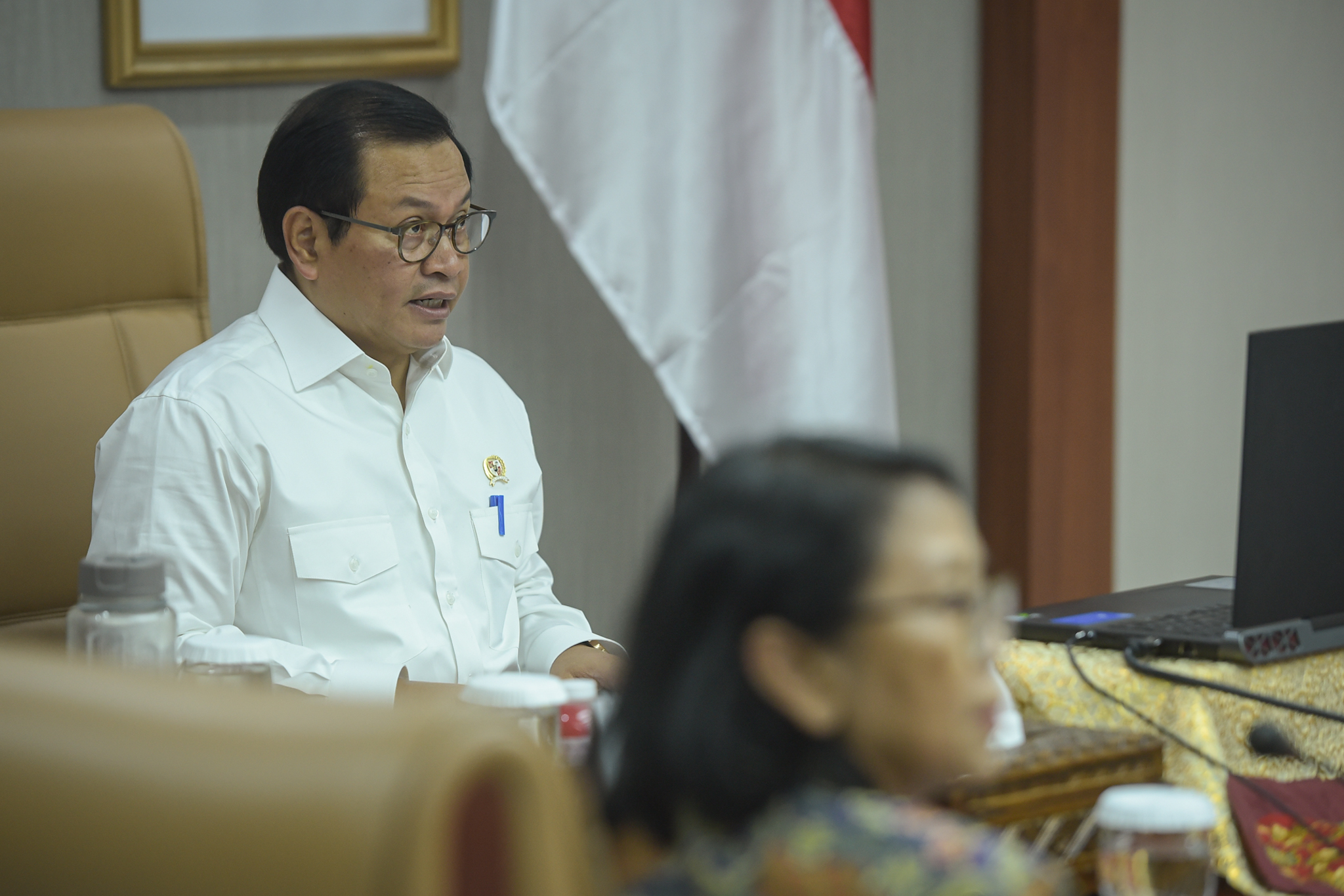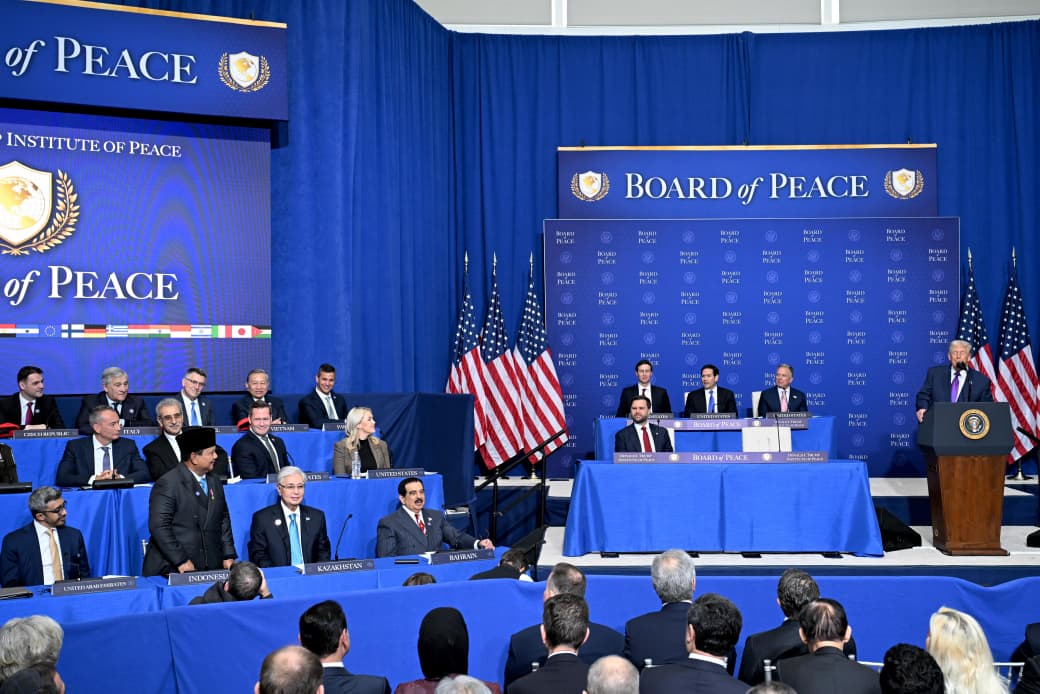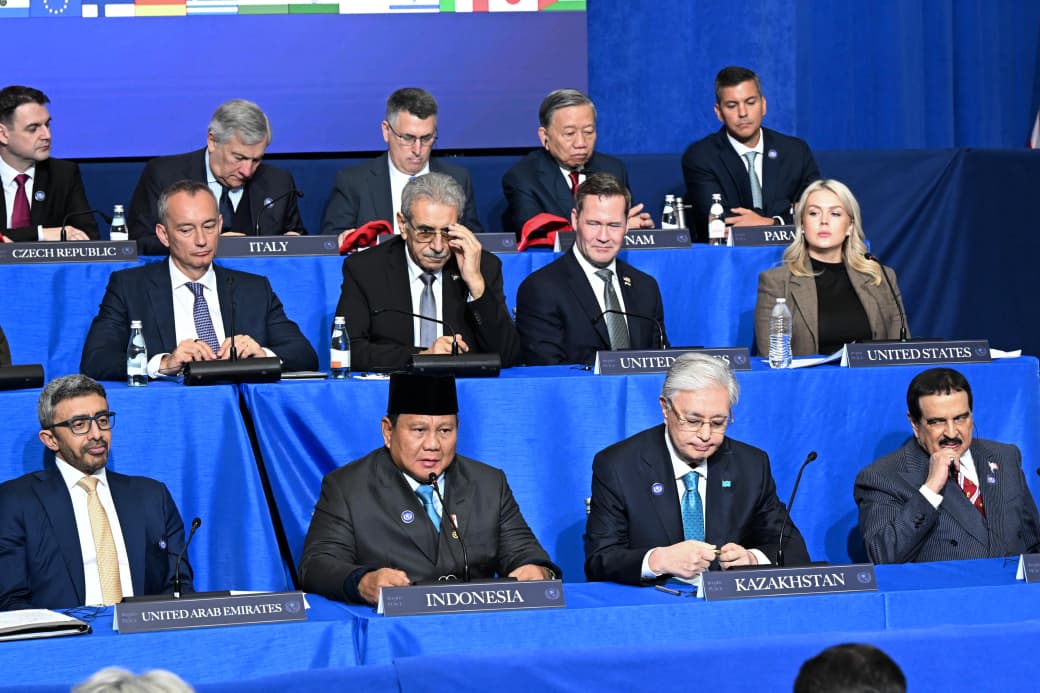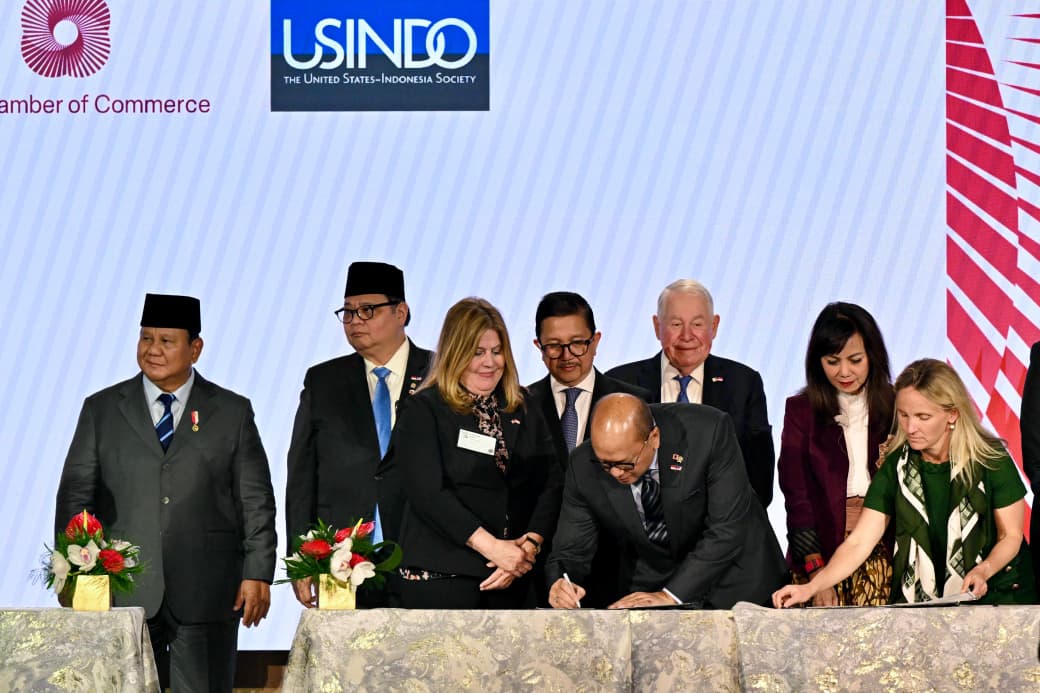Gov’t to Implement Staple Food Card, Pre-Employment Card Programs, Relax MSMEs

Cabinet Secretary listens to the President’s directives during a limited meeting through a video conference, at his office, Jakarta, Tuesday (24/3). (Photo by: PR/Agung)
In a bid to combat Covid-19, the Indonesian Government will issue a policy for Staple Food Card recipients, Pre-employment Card, as well as relaxation for micro, small and medium businesses.
“Over the next 6 months, we will add Rp50,000 more, so that Rp200,000 (will be) received per beneficiary family. The budget that we have prepared reaches Rp4.5 trillion,” President Joko “Jokowi” Widodo said on his introductory remarks at the limited cabinet meeting on President Directives to Governors in Dealing with the COVID-19 Pandemic, at the Merdeka Palace, Jakarta, Tuesday (24/3).
Furthermore, President Jokowi also instructed that the implementation of the Pre-employment Card Program be immediately started to anticipate workers affected by layoffs, daily workers who lose income, and micro-entrepreneurs who lose market or lose turnover.
“The budget allocation that we have prepared reaches Rp10 trillion. So, in order for the provinces to be able to support this, the recipients should be listed correctly,” President Jokowi said.
Indonesian Financial Services Authority (OJK), the President stated, will provide a leeway such as credit relaxation for micro and small businesses for credit values below Rp10 billion. He added that both credits given by the banks and the non-bank financial industry will be given a one-year repayment delay and a decrease in interest.
“I have also heard complaints from motorcycle taxi drivers, taxi drivers, who have motorcycle or car loans or fishermen who have boat loans. I think this also needs to be conveyed to them, to not worry because interest payments and installments are given leeway or relaxation for a year,” President Jokowi stated.
The Government, according to the President, have also calculated various scenarios on the impact of Covid-19. “I think we want us to be in a mild scenario. If it is really hard to block, then we should at least only get into the medium scenario, do not get into the worst scenario,” he said.
The Government, the President went on to say, has also calculated the decrease in several provinces on resistance, on the decrease in income from each of the existing provinces.
The President exemplified that in a moderate scenario, workers in West Nusa Tenggara will be hit the worst with a decline in income of approximately 25 percent and can still survive in June to September.
“Then, for farmers and fishermen, please also be careful, in a moderate scenario, the worst hit will be in West Kalimantan. There will be a decline in income of up to 34 percent, with resistance in October to November,” President Jokowi stated.
According to the President, in a moderate scenario, micro and small traders in North Kalimantan will suffer the worst hit, with a decline in income of up to 36 percent and the ability to survive in August to October.
“Then, for public transportation and motorcycle taxi drivers, the most severe is in North Sumatra, the decline is up to 44 percent,” he added.
These figures, the President said, also need to be calculated in detail by the regions so that preparations for social assistance in provinces, regencies, and cities can really be prepared via refocusing and reallocation of existing budgets.
“If we work in detail, we can follow it in the field, I believe now the people have started to move. The provinces have also worked hard, both in spraying disinfectant, then disseminating how to keep a safe distance. I believe that the lightest scenario will emerge,” he concluded. (TGH/FID/EN)
Translated by: Fairuzzamani Inayatillah
Reviewed by: Mia M. Bonaedy







